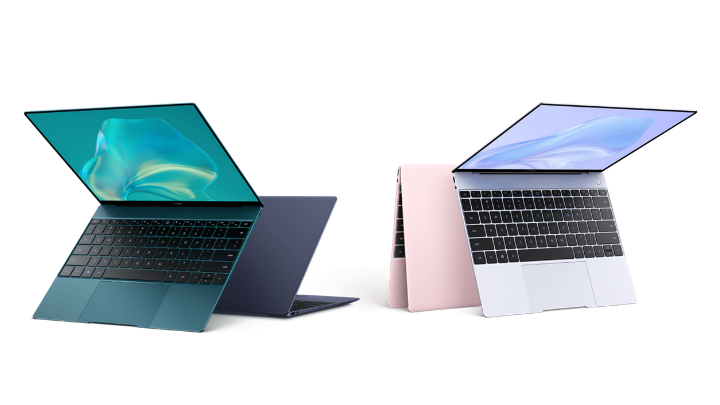Forced out of 5G race, Huawei now eyes PCs, smart screens
Plans another dual brand approach

Huawei launched what could arguably be the world's thinnest and lightest laptop, the MateBook X 2020 at a media event in Shanghai. Though the device itself was awe inspiring, what turned out to be even more so was the company's strategy revamp as it came to terms with the slow but steady evaporation of its global 5G dreams.
The company, which rarely addresses the media in such a fashion, also revealed that it would be debuting a new gaming PC from the Honor stable on September 1, thus indicating that Huawei was definitely shifting focus away from the 5G enablement following sanctions from the US and the UK.
Since then, several players have entered the 5G game including Nokia, Ericsson and even our home grown Reliance Jio. With Indian cellular operators such as Airtel now avoiding the Chinese company, preferring the likes of Nokia and Ericsson instead, things do look bleak.
Huawei officials had predicted a tough 2020 but now it appears as though the company is all set to reinvent itself with additional focus on the PCs, smart screens and allied other businesses as the sanctions by the US only affects its smartphone and 5G equipment business.
- US continues to back Jio on 5G tech
- Reliance AGM 2020: Jio's announcements for 5G, Android smartphones
- New US sanctions set to squeeze Huawei's chip supply even further
A sharp focus on PC market
Gizchina quoted company sources to report that Huawei's PC layout would be similar to what it has followed with smartphones. Huawei would focus on flagships while Honor would create new products for younger users. Yu Chengdong, the company's head for consumer electronics, said in spite of being a new entrant to the PC market, they had already taken the top slot in China.
The PC range of Huawei boasts of the flagship X series, the Digital series that focuses on thin and light notebooks and the D series that boasts higher performance.
Today, the company released a new generation of MateBook X, Huawei MateBook 13/14 2020 Ryzen Edition, and updated its flagship series and digital series. The MateBook X Pro series is listed on Amazon India but is currently unavailable, which we believe could be a result of India's clamp down on imports from China in the wake of the Sino-Indian border skirmishes in June.
Sign up for breaking news, reviews, opinion, top tech deals, and more.
The Gizchina report further quoted Li Bin, VP of Huawei's consumer businesses to suggest that a new B series of laptops are in the works with a target audience of corporate customers and government departments.
The ban and its aftermath
The core issue that resulted in Huawei losing ground in the United States relates to concerns over the company's links with the Chinese government and fears that its equipment could be used to spy on other countries and companies. The US government, which had banned Huawei networking equipment back in 2012, added the company to its security list in May 2019. It was an executive order from President Donald Trump that led to Huawei's ban, which has since been extended till 2021.
The ban coincided with market research reports that indicated a flurry of smartphone shipments by Huawei during 2020 that led it to replace Samsung and Apple at the top of the list of global phone shipments for the first time during the April-June quarter when the lockdown caused by the Covid-19 pandemic was at its peak.
#HUAWEICLOUD is building a robust ecosystem with partners for shared success in digital transformation, which consists of more than 10,000 consulting partners and 2,000 tech partners, with over 3 million developers & businesses benefiting. #HuaweiFactsAugust 20, 2020
Other focus areas
In addition to the PC market, Huawei could also be shifting its attention to smart screens, having already launched several such products in the consumer market. This could include products for the corporate and government departments that can find use in the workplace scenarios.
Other focus areas that Huawei appears to be moving towards includes the Huawei Cloud, which the company is pitching as partners for building a robust ecosystem by digital transformation. The company quotes from a report published on CIO.com where Huawei lists out several use cases of their cloud business.
Given that the Huawei Mate40 might end up being its final flagship smartphone for some time to come given the bans in the US and India, it is not surprising that the company is veering off into the high-profit IoT categories that includes PCs and other smart screen devices. With China too likely to retaliate against the US on import of technology, maybe Huawei can bridge the gap.

A media veteran who turned a gadget lover fairly recently. An early adopter of Apple products, Raj has an insatiable curiosity for facts and figures which he puts to use in research. He engages in active sport and retreats to his farm during his spare time.